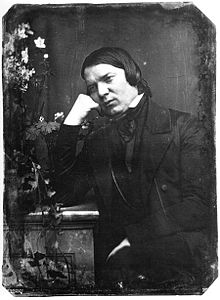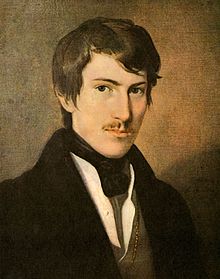
Robert Schumann was a German composer, pianist, and influential music critic. He is widely regarded as one of the greatest composers of the Romantic era. Schumann left the study of law, intending to pursue a career as a virtuoso pianist. His teacher, Friedrich Wieck, a German pianist, had assured him that he could become the finest pianist in Europe, but a hand injury ended this dream. Schumann then focused his musical energies on composing.

The Piano Concerto in A minor, Op. 54, by the German Romantic composer Robert Schumann was completed in 1845 and is the composer's only piano concerto. The complete work was premiered in Dresden on 4 December 1845. It is one of the most widely performed and recorded piano concertos from the Romantic period.

The Piano Quintet in E-flat major, Op. 44, by Robert Schumann was composed in 1842 and received its first public performance the following year. Noted for its "extroverted, exuberant" character, Schumann's piano quintet is considered one of his finest compositions and a major work of nineteenth-century chamber music. Composed for piano and string quartet, the work revolutionized the instrumentation and musical character of the piano quintet and established it as a quintessentially Romantic genre.

Nikolaus Lenau was the pen name of Nikolaus Franz Niembsch Edler von Strehlenau, a German-language Austrian poet.
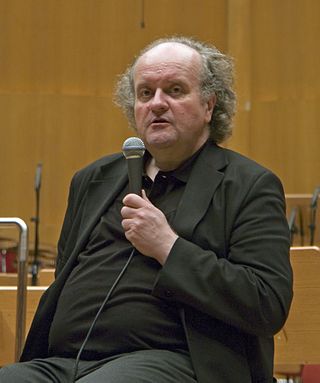
Wolfgang Rihm is a German composer and academic teacher. He is musical director of the Institute of New Music and Media at the University of Music Karlsruhe and has been composer in residence at the Lucerne Festival and the Salzburg Festival. He was honoured as Officier of the Ordre des Arts et des Lettres in 2001. His musical work includes more than 500 works. In 2012, The Guardian wrote: "enormous output and bewildering variety of styles and sounds".
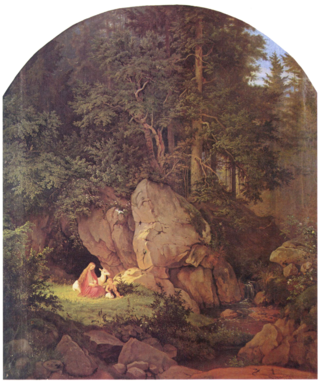
Genoveva, Op. 81, is an opera in four acts by Robert Schumann in the genre of German Romanticism with a libretto by Robert Reinick and the composer. The only opera Schumann ever wrote, it received its first performance on 25 June 1850 at the Stadttheater in Leipzig, with the composer conducting. It received only three performances during the premiere, and the negative criticism it received in the press played a decisive role in Schumann's decision to not write a second opera.

The Symphony No. 1 in B♭ major, Op. 38, also known as the Spring Symphony, is the first completed symphonic work composed by Robert Schumann.

Johann Vesque von Püttlingen, born J. Vesque de Puttelange, was an Austrian lawyer, diplomat, author, composer and singer. His full name and title in German was Johann Vesque, Freiherr von Püttlingen.

Jean Louis Nicodé was a Prussian pianist, composer and conductor.

Andreas Boyde is a German pianist.

Max Reger's 1915 Requiem, Op. 144b, is a late Romantic setting of Friedrich Hebbel's poem "Requiem" for alto or baritone solo, chorus and orchestra. It is Reger's last completed work for chorus and orchestra, dedicated in the autograph as Dem Andenken der im Kriege 1914/15 gefallenen deutschen Helden.

The Piano Quartet in E♭ major, Op. 47, was composed by Robert Schumann in 1842 for piano, violin, viola and cello. Written during a productive period in which he produced several large-scale chamber music works, it has been described as the "creative double" of his Piano Quintet, finished weeks earlier. Though dedicated to the Russian cellist Mathieu Wielhorsky, it was written with Schumann's wife Clara in mind, who would be the pianist at the premiere on 8 December 1844 in Leipzig.

Wilhelm Joseph von Wasielewski was a German violinist, conductor, and musicologist.
The Julius Caesar overture, Op. 128, is a concert overture written in 1851 by Robert Schumann, inspired by Shakespeare's play Julius Caesar and influenced by the Egmont and Coriolan overtures of Ludwig van Beethoven.

The Three Romances for Oboe and Piano, Op. 94 is a composition by Robert Schumann, his only composition for oboe. It was composed in December 1849. The work consists of three short pieces in A-B-A form, and it was written during what was speculated to be one of Schumann's manic episodes.
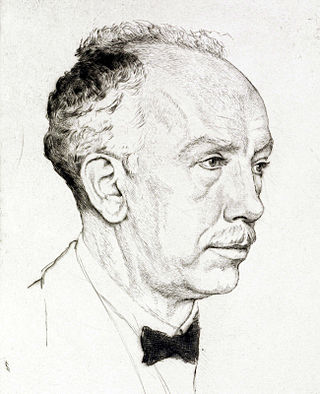
Sechs Lieder, Op. 68, is a collection of six Lieder by Richard Strauss. He composed them, setting poems by Clemens Brentano, in 1918 for soprano and piano, and orchestrated one in 1933 and five in 1940. The piano version was first published by Adolph Fürstner in Berlin in 1919. They are also known as Brentano Lieder.

Anton Beer-Walbrunn was a German composer.

Robert Schumann's Five Pieces in Folk Style, Op. 102 is a set of five short pieces for cello and piano, composed in 1849 and published in 1851 with a dedication to cellist Andreas Grabau. It was Schumann's only published work designed explicitly for performance by cello and piano, though the pieces also appeared in a version prepared by Schumann for violin and piano. The first edition's title page reads "ad libitum violine".
